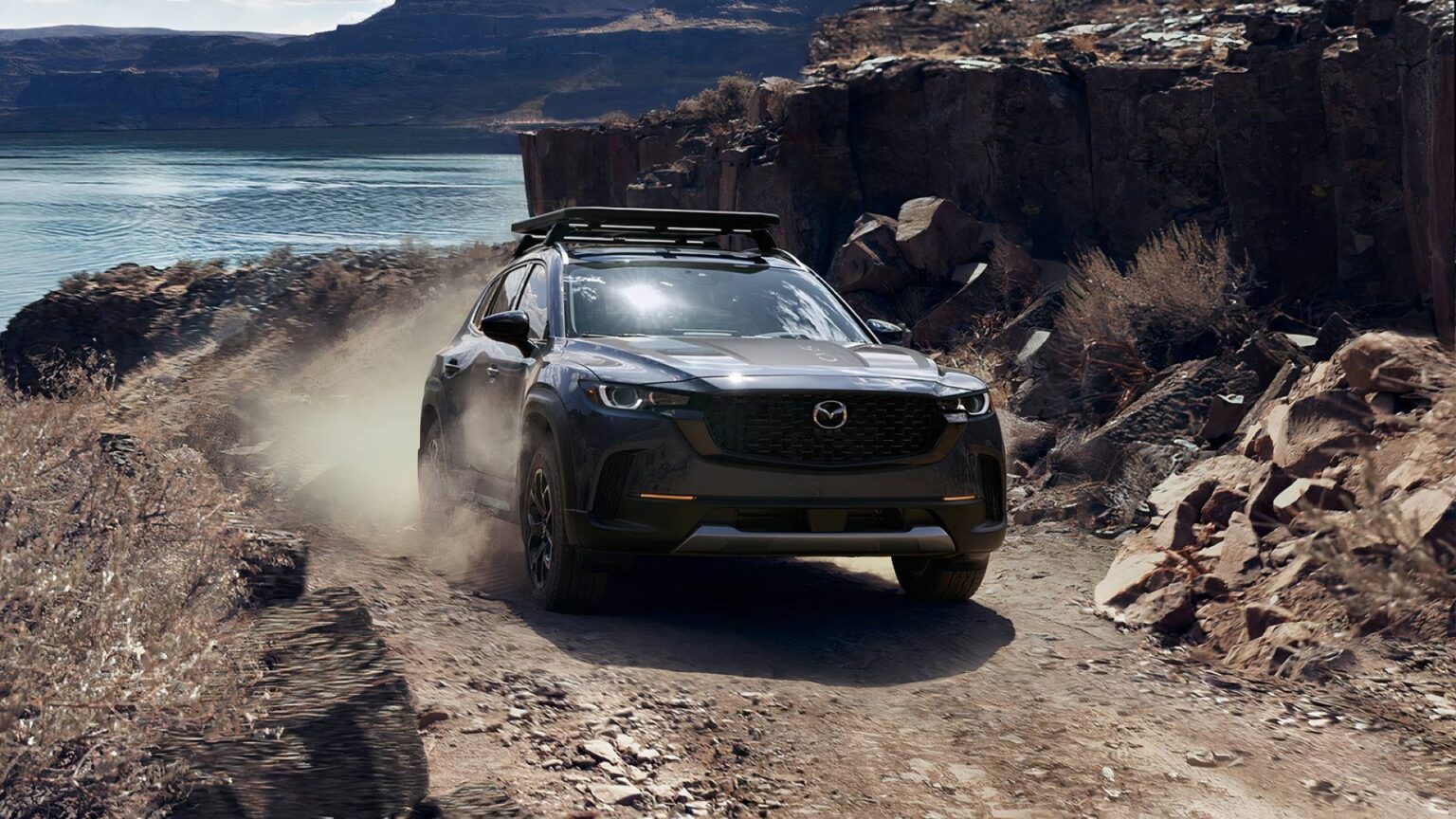Mazda might be putting its electrification efforts on a temporary back burner to focus on ICE tech as multiple external factors have the company reworking its near-future strategy. AutomotiveNews recently sat down with Mazda CEO, Masahiro Miro, who shared that the company’s original plan for the next five to seven years is currently being reassessed given the latest political shakeup in the U.S., which is one of the automaker’s crucial markets.
The company admits that they’ve been a little bit late to the electrification party. But with the recent election of President Donald Trump and his supposed mandate for tariffs threatening to disrupt global trade, as well as the continued “EV slowdown,” with market demand for electric vehicles not being as strong as anticipated, Mazda is actually slightly relieved. According to Miro, these changes actually alleviate some of the pressure to produce EVs, which would ultimately put less financial stress on the company while allowing it to focus more on developing its promising hyperefficient internal combustion technology.
President-Elect Trump’s Potential Tariff Policies Could Significantly Alter Mazda’s Future
Not too long ago, Mazda held its annual quarterly financial press conference and meeting to share some of its product strategy for the near future with investors and other interested parties. In that meeting, Mazda announced a new multiphase plan that would include the development and launch of a new battery electric vehicle, a next-gen Mazda CX-5, some new hybrid models, and a new line of Skyactive-Z gasoline engines.
But given all the events that transpired recently, Mazda’s plan could be severely affected, forcing the company to alter its plans. That’s because Mazda has significant manufacturing infrastructure in Mexico for the U.S. market, including a major assembly line for both the Mazda3 sedan and the CX-30 crossover, two models that makeup over a third of the company’s sales in the States. The rest of Mazda’s models are manufactured in Japan and imported into the U.S.
With President-Elect Trump threatening up to 25% tariffs against goods from Mexico, such a policy could seriously affect the company’s profits, its overall projected bottom line, and even decisions and confidence from investors.
“Mazda is in a very difficult situation with tariffs. If they don’t raise prices, they could lose profits. If they do raise prices, they will likely have to raise incentives,” Koji Endo told AutomotiveNews, the director of SBI Securities Co. in Tokyo and an automotive analyst. “They could face a real challenge in making profits in the U.S., and if they lose this profit center, it’s serious trouble.”
As a result, Mazda’s future now significantly depends on the U.S. and its potential tariffs.
Tariffs Could Force Mazda To Delay Electrification Efforts
And Focus On Hyper-Efficient ICEs And Hybrids
While everyone seems to be in a concerned state and holding pattern given the situation with lingering tariffs amid the election of President Donald Trump, Mazda reportedly sees the situation as an opportunity to reduce its expenses by investing in technology that they’re already familiar with, internal combustion technologies, according to AutomotiveNews.
“In the U.S., we’re watching what kind of policy they will deploy. It’s hard to predict. But overall, battery EV penetration will be a little bit pushed back in terms of time frame,” Moro told AN. “We will have to wait and see. We have a number of levers to pull.”
Furthermore, Mazda sees the opportunity to refocus its efforts on gas-electric hybridization since EVs aren’t selling as well as everyone anticipated. Trump’s potential tariff policies could also encourage more automakers to invest in hybrid tech and even more efficient internal combustion engines.
If tariffs are the negatives, then the slowdown in the EV program is a blessing in disguise
Christopher Richter commented on the matter to AN, an Asian market auto analyst for CLSA in Tokyo. “It grants them a reprieve. They don’t need to spend as quickly on EVs as they were planning to do. There isn’t the same urgency.”
“If demand declines, there are many companies that have engaged in battery EV industry growth. Those guys will be also in trouble,” Moro continued. “But we have taken a prudent approach as an intentional follower from the beginning because my viewpoint is very close to the market.”
“A slower pace for EVs might help not only Mazda but also many suppliers that have to transition. As long as the pace of change is slow, it must be a little easier for them to adapt,” Moro concluded. “We’ll get a little more time for technology development.”
Source: AutomotiveNews
Read the full article here


